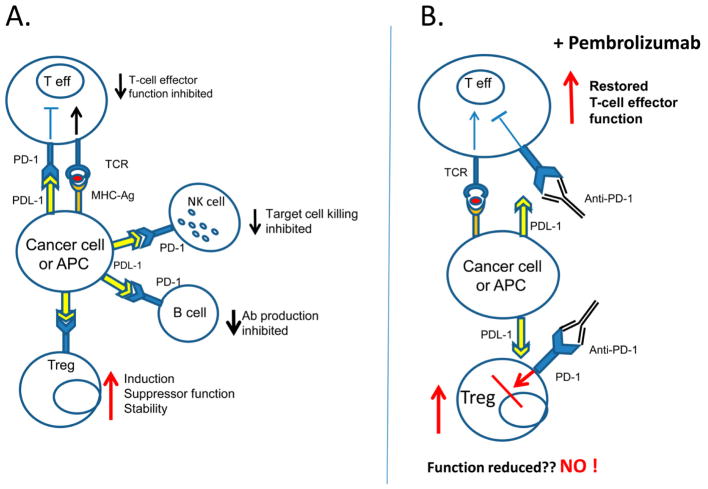Figure 3.
Antigen-driven PD-1/PD-L1 signaling: (A) in patients with cancer, where tumor cells or antigen presenting cells express PD-L1, signaling via PD-1 leads to inhibition of effector functions in all immune cells except for Treg. PD-1/PD-L1 signaling in Treg leads to greater stability and more effective suppression. (B) in cancer patients receiving therapy with anti-PD-1 Abs such as pembrolizumab, immune cells are rejuvenated and regain anti-tumor functions. In contrast, PD-1/PD-L1 signaling does not seem to decrease the Treg frequency or block their functions. Instead, Treg stability and functions are not altered, suggesting that ICI restores Teff cell activity without depleting Treg or suppressing their functions.

